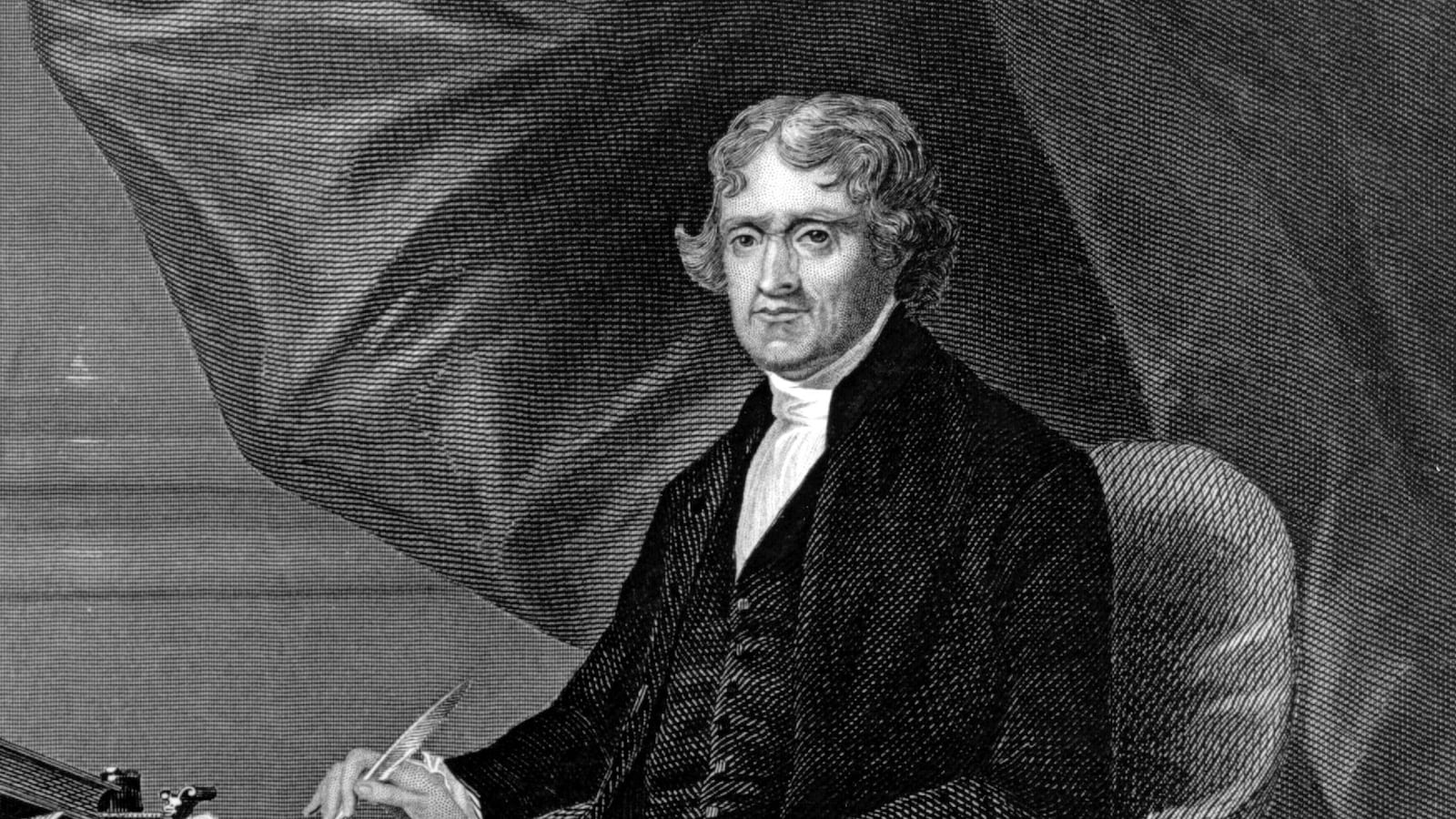In a compact 85 minutes, “The Gospel According to Thomas Jefferson, Charles Dickens, and Count Leo Tolstoy: Discord” ambitiously wades through life’s most primal, yet endlessly perplexing concepts (morality, mortality, etymology) from the prism of the three eponymous philosophers. That director Matt August’s ebullient and incisive production doesn’t locate the answers that have been eluding us since time immemorial is unsurprising. After all, “Discord” is more a series of conversations than revelations.
Taking a chapter out of Jean-Paul Sartre’s existential masterwork “No Exit," playwright Scott Carter’s brisk and poignant theological romp opens with a triumvirate of deceased, perennially recognizable figures—Jefferson (Larry Cedar), Tolstoy (Armin Shimerman), and Dickens (David Melville)—ensnared in a white room with nothing but a desk, three chairs, and their consciousness. Desperate attempts to leave this “cosmic foyer” yield disappointing results, followed by the terrifying notion that they are trapped in this rectangular box for eternity.
The inability to escape spawns the group’s first of many probing inquiries: where do we go when we die, and where the hell are they now? Coincidentally, these first questions, a seamless confluence of comedy and profundity, encapsulates “Discord’s” gift for distillation.
According to the playbill, the answer is neither heaven nor hell (nor purgatory). Carter coyly characterizes the setting as “a room” and the time period as “yes.” After the formalities are put aside, the next question posed is the same one on the minds of everyone in the Geffen Playhouse audience yesterday afternoon: why these three?
Through graceful exposition we glean that during their lifetime, each of the three thinkers boldly (and perhaps arrogantly) constructed (and published) a bible of their own. These tomes, born through a process of cherry-picking the “best” passages from the King James Version, contained the guiding principles in which Tolstoy, Jefferson, and Dickens ostensibly lived. This epiphany creates the play’s core conflict: whose way is the right way?
“Discord” proceeds to envelop us in this exhaustive, mind-racking debate. And if it weren’t for the distinguished players in the game, no would be watching. Divided into 15 acts of various length, each character is allowed ample time to persuade the others how and why God came to fruition. Seeping through these explanations are the idiosyncrasies and livelihoods of their authors.
In his opulent maroon suit, Dickens flaunts his fame and fortune with so little subtlety he makes Kanye West appear modest. But underneath the egotistical veneer (constantly referring to characters from his own work, i.e., Oliver Twist or Scrooge, mid-conversation) is crippling insecurity. In some of the more tender sequences, Melville delicately hints and expands on these pangs—especially in his publicly idyllic domestic life—that Dickens has been bottling up.
However, it’s Dickens’ animated, self-absorbed persona that triggers a passionate response from Tolstoy and Jefferson. At first glance, Russia’s preeminent novelist and America’s controversial third President only similarity is fornication with their servant(s). But the more they speak, the more the two are bound by pragmatism. When Dickens retells the life and times of Jesus Christ (a colorful narrative contemporary Christians will identify with), Tolstoy and Jefferson concurrently denounce it as fictitious balderdash written by self-serving members of the Church.
It’s here that “Discord” looses some of its bite and edge. For about 15 minutes the stirring discourse becomes lopsided as Jefferson and Tolstoy team up on Dickens, creating an imbalance that’s neither effective nor interesting. But that issue is short-lived.
Cedar (who you may recognize as Leon, the opium addict from Deadwood) revives the play with Jefferson’s plight for reason and logic in a world replete with chaos. Even in the instances where you conceptually disagree, Cedar delivers the founding father’s ideas with such posh lucidity and force that the speech’s substance is nearly irrelevant. Without overshadowing his talented counterparts, Cedar commands the stage with a meticulous mix of stoicism and candor. In fact, the actor is never stronger than when the play shifts its attention to Jefferson’s polemical ambivalence towards the emancipation of slaves—of which he owned roughly 600.
Carter—who is also a writer and executive producer with Bill Maher, first with “Politically Incorrect” and now “Real Time”—is unafraid to explore this sensitive terrain. At once uproarious, raw, and painfully honest, “Discord” unveils the many virtues and vices of these towering icons. Similar to Maher’s raucous program, Carter has no interest in moral or political obedience, in drowning in hagiographic fodder because it’s more convenient or less offensive. And by mercilessly diving headfirst into these exploits, “Discord” discovers a universal truth: no human is human without flaws.
Throughout their sordid lives, Tolstoy, Jefferson, and Dickens made decisions that directly contradicted with the morals they propagated. They succumbed to infidelity, remained materialistic, and acted selfishly. These transgressions couldn’t judiciously be described as irregular behavior, occasional hiccups in their otherwise scrupulous lives.
These men were plagued by a familiar hypocrisy that all of us have (or will have) experienced. Without falling down an irredeemable rabbit hole of cynicism, “Discord” contends that who we long to be, our most altruistic self, lies in our language—the written word, conversations with others, monologues in our head. But ultimately we are defined by our actions, whether we wish to be or not. Jefferson may have promoted “all men are created” on paper, but no one is ever going to forget about the half thousand slaves.






